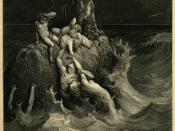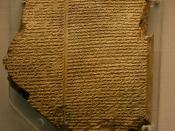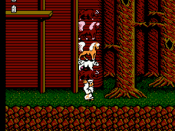How? Who? What? When? Where? Why? Most people learn these basic question words early on in life, a time when we are quite curious about the intricate and mysterious workings of the world around us but also a time when we had previously had no way of verbally expressing this inquisitive nature. However, once we gain the ability to question what we might otherwise have been forced to accept at face value, utilizing this handy skill becomes a habit of sorts. Many of us might start out asking simple questions like "what?" while pointing and following the path of a small, furry, brown thing scurrying across the lawn. A more or less ecstatic parental figure answers, "Squirrel! That's a squirrel! Honey, look, she's curious!" This enthusiastic response from mom or dad often helps to condition a young questioner's mind into viewing his or her own inquiries as very good things that should be expressed to the rest of the world.
Yet, somehow, in the case of Bible studies, many people have stopped asking questions, becoming complacent with the stories they are told without even attempting to satisfy the apparent inconsistencies within those stories. On the other end of the spectrum, many people may ask too many questions of the Bible, when, instead, they should accept the word of God as truth without a fight. Specifically, the story of Noah's ark, also known as the flood myth, is the source of one of the largest controversies between scientists and Christians. The Book of Genesis, in chapters 6-9, tells how God sends a great flood to destroy the earth because of man's wickedness and because of the earth's corruption. God tells Noah, the righteous man in his generation, to build a large vessel to save his family and a representation of...


